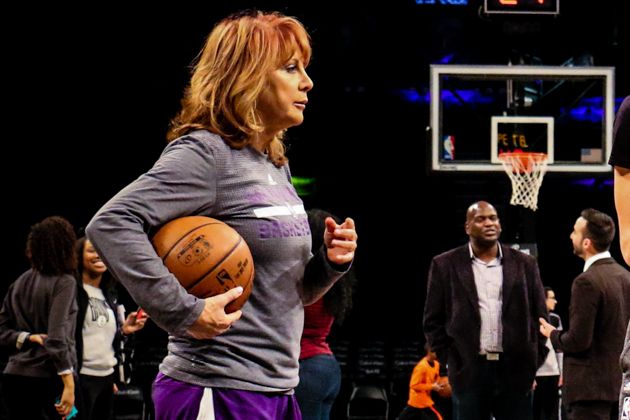“Sports are 90% mental.”
It’s a common phrase about mental toughness heard from coaches across all sports, with people typically referring to the remaining 10% of the equation as “physical.” Although the origin and exact phrasing are unclear, many historians credit the quote to baseball legend Yogi Berra.
Regardless of what the complete percentage breakdown should be, one thing is clear: Mental toughness is one of the keys to success in sports.
To develop mental toughness on and off the court or field of play, athletes should know what their strengths and weaknesses are.
For younger athletes, this can be a good thinking exercise to start – have them pick five things they do well, and five things they think they need to improve. Encourage them to be honest and specific.
BSN SPORTS & TGCA Coaches Survey
When it comes to coaches of female athletes, the mental side of the game is a common focus.
According to a recent survey of more than 13,000 women’s sports coaches conducted by BSN SPORTS and the Texas Girls Coaches Association (TGCA) , “Psychological and Emotional Issues Among Players” was the No. 2 most significant challenge, ranked just behind “Funding/Budget.”
The question asked coaches to rate how challenging various issues are for them on a least-to-most scale with varying options. The voting breakdown for “Psychological and Emotional Issues Among Players” was as follows:
- Not Challenging at All: 9%
- Somewhat Challenging: 52%
- Fairly Challenging: 28%
- Extremely Challenging: 11%
The results show a clear need to not only focus on the psychological side, but to make it a priority. This is why coaches should consistently try to help their players build mental toughness.
Here are some ways to help:
1. Deal with problems head-on
The longer you let problems linger, the harder it can be to figure out the solutions. Do your best to deal with issues as soon as they arise, and take pride once you’re able to overcome them.
2. Guard your thoughts
You don’t have to be an open book and a compulsive confessor – sometimes it’s best to keep some of your thoughts to yourself.
3. Use mental imagery; visualize
Whether it’s the night before the game before bed or sitting on the bench during a timeout before the game-winning play, try to use your mind to visualize success.
Additionally, try to keep your mental imagery positive. I don’t talk negative, so I don’t have my monsters in my head.
More From Nancy Lieberman: 10 Team-Bonding Activities To Help Build Chemistry
4. Take responsibility
Accountability is a common trait among successful teams.
Players who are honest and accountable with each other – and themselves – are often able to build trust with each other. Trust often leads to success, and success often leads to confidence. A confident team is a mentally tough team.
5. Control your emotions
It’s important that athletes’ moods don’t get too high or too low. Sports are typically a roller coaster with several lead changes and momentum shifts, but it can help players to keep their emotions balanced during the ups and downs of competition.
6. Don’t be afraid of failure
I respect everyone and fear no one. We are always going to experience failure – and we’re going to experience it often – but if we choose to accept it and learn from it, we can continue to grow and evolve, not only in our sport, but also in life.
A coach’s greatest trait is to make players believe in themselves. If players feel diminished mentally, they can bring themselves down, and others on the team down with them.
BSN SPORTS Women
At BSN SPORTS, we realized there was a clear need to elevate women’s sports at all levels – from providing more support to coaches of female athletes, to connecting women working in the sports industry. Because of this, we’ve made it a priority to uplift and empower women in sports through our key partnerships, programs and content.
Learn more about the BSN SPORTS women’s initiatives here.
More From Nancy Lieberman: 4 Tips For Coaching Female Athletes

